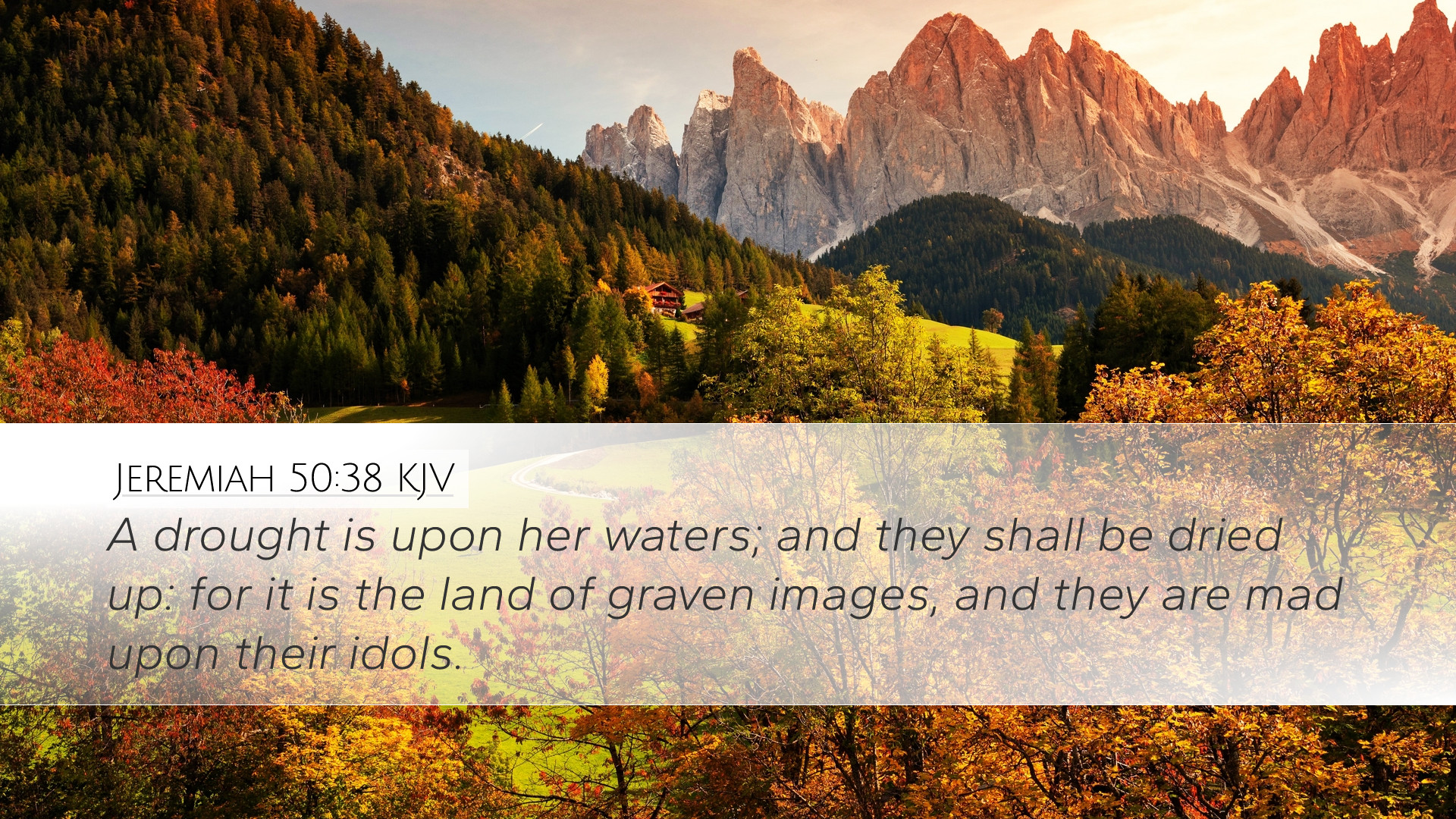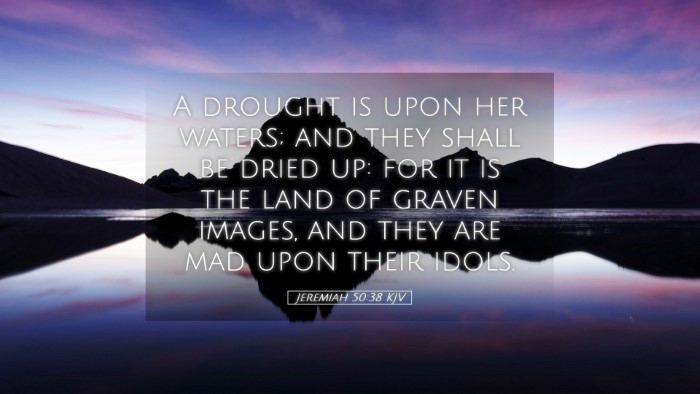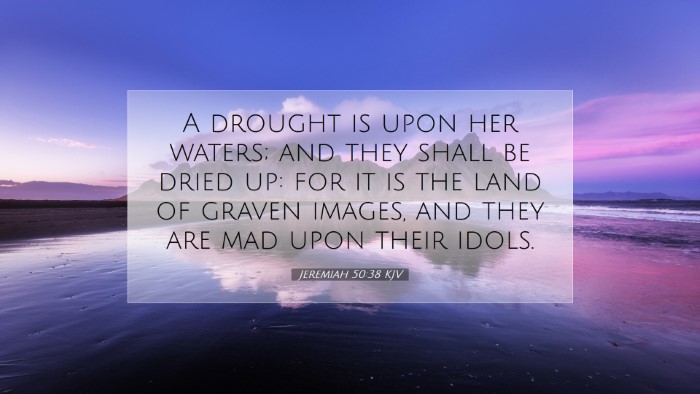Commentary on Jeremiah 50:38
Verse: "A drought is upon her waters; and they shall be dried up: for it is the land of graven images, and they are mad upon their idols.”
Introduction
This verse from the book of Jeremiah speaks to the judgment of God upon Babylon, symbolizing divine retribution for her idolatry and immorality. The imagery of drought indicates both a physical and spiritual desolation. This commentary synthesizes insights from various public domain commentaries to illuminate the text's meaning for contemporary readers.
Contextual Analysis
Jeremiah prophesied during a tumultuous period in the history of Israel, particularly concerning the Babylonian empire, which had exerted tremendous pressure on the Israelites. The surrounding chapters depict God's plan for the downfall of Babylon, emphasizing the consequences of her sinful practices.
Historical Background
Babylon was a center of idolatry, filled with graven images that captivated the hearts of the people. The charge against Babylon is serious; their reliance on these false gods stands condemned. The prophecy articulates a divine drought, a figurative expression implying that all life-sustaining resources would be withheld due to their wickedness.
Verse Breakdown
- Drought: The use of “drought” indicates scarcity and is often a metaphor for spiritual barrenness. As noted by Albert Barnes, the absence of water is symbolic of the absence of divine blessing.
- Waters: Waters often symbolize life and prosperity in Biblical literature. In this context, it's a sobering reminder that the prosperity of Babylon is contingent upon God's blessing.
- Dried Up: The complete drying up of waters signifies total desolation. According to Matthew Henry, this represents divine judgment that leads to the eventual downfall of a proud nation.
- Graven Images: The reference to ‘graven images’ underscores the futility of idol worship. Adam Clarke points out that such images are incapable of providing true hope or deliverance.
- Mad upon their Idols: This phrase conveys the intensity of their devotion to false gods, indicating a state of moral insanity. As Clarke elaborates, their foolishness in pursuing idols over the true God leads to their ultimate ruin.
Theological Significance
The central message of Jeremiah 50:38 is a profound warning about the consequences of idolatry. It serves as a reminder that true spirituality relies on fidelity to God rather than misplaced trust in false idols. In the context of Christian ministry today, this verse prompts believers to evaluate what "idols" may exist in their own lives—anything that takes precedence over their relationship with God.
Idolatry and Its Consequences
John Calvin asserts that idolatry leads to the blinding of the heart and mind. Babylon’s fervor for their idols illustrates a deep-seated estrangement from God, and the judgment foretold through drought serves as a direct consequence of this estrangement. It serves as a metaphor for the spiritual emptiness experienced by any nation or individual turning away from God.
Lessons for Today
- Divine Judgment: The principle of divine judgment remains applicable. As pastors and theologians, it is critical to underscore that God's grace does not negate His holiness; judgment on idolatry is inevitable.
- Spiritual Barrenness: The image of drought reflects a spiritual condition that can be present in modern congregations. Churches today can evaluate whether they are fostering a living relationship with God or merely practicing rituals devoid of spiritual vitality.
- Call to Repentance: The prophetic warning calls not only for acknowledgment of past errors but for genuine repentance and a return to the worship of the true God.
Conclusion
Jeremiah 50:38 serves as a poignant reminder of the dangers of idolatry and the inevitable outcomes of turning from God's ways. The insights from various commentators stress that the passage is not merely historical but carries lasting theological implications for individuals and communities of faith today. Believers are encouraged to forsake any idols in their lives, pursuing instead a vibrant relationship with the Creator, who alone can fill the spiritual void and provide true sustenance.


